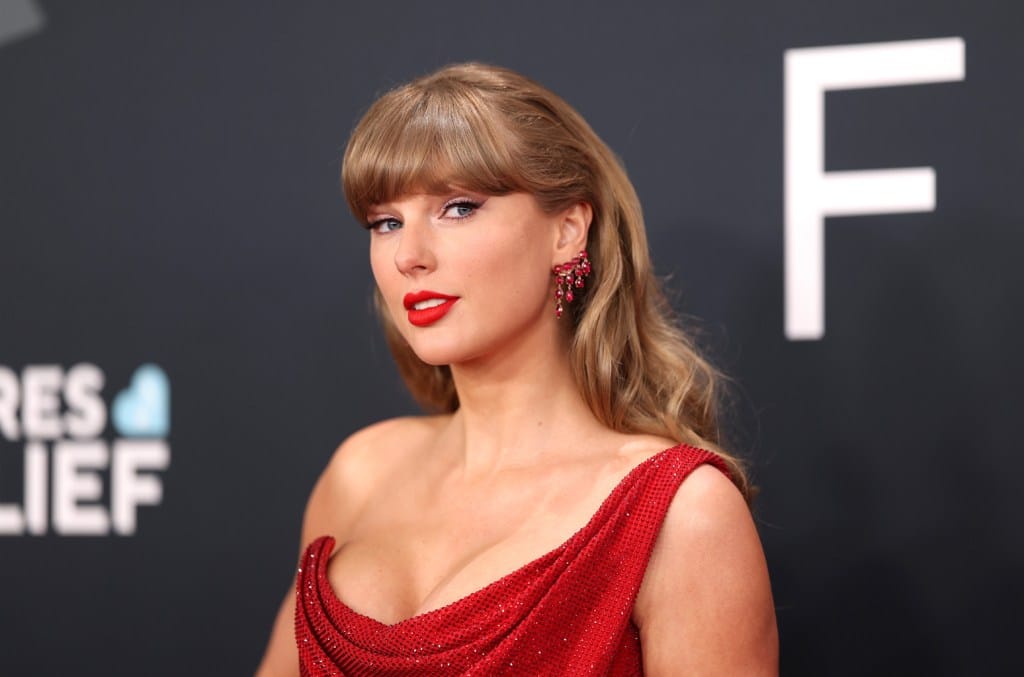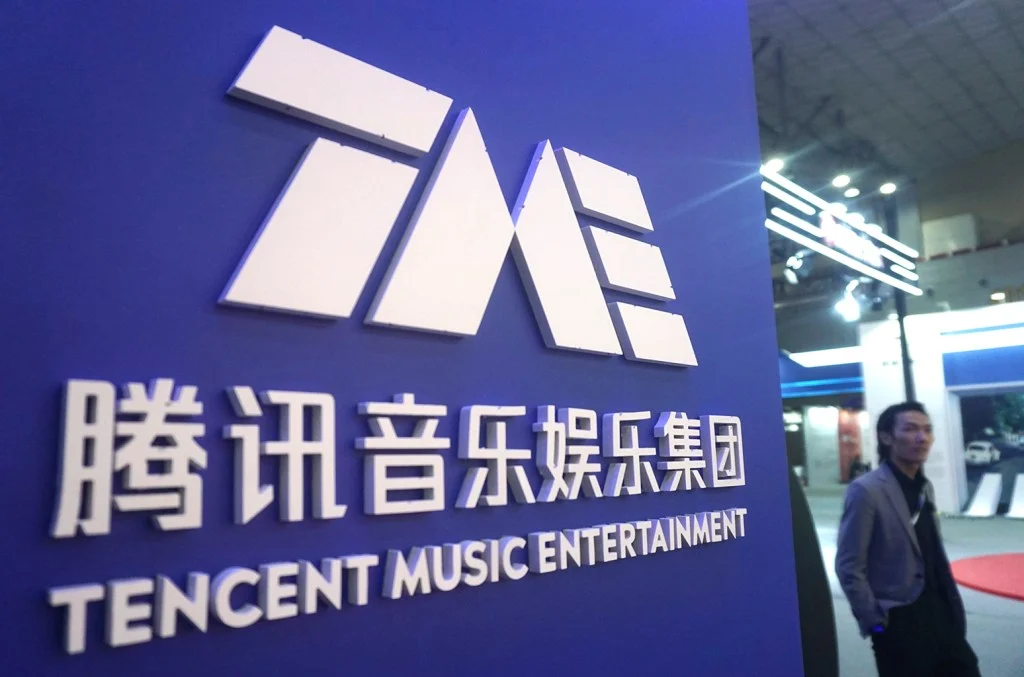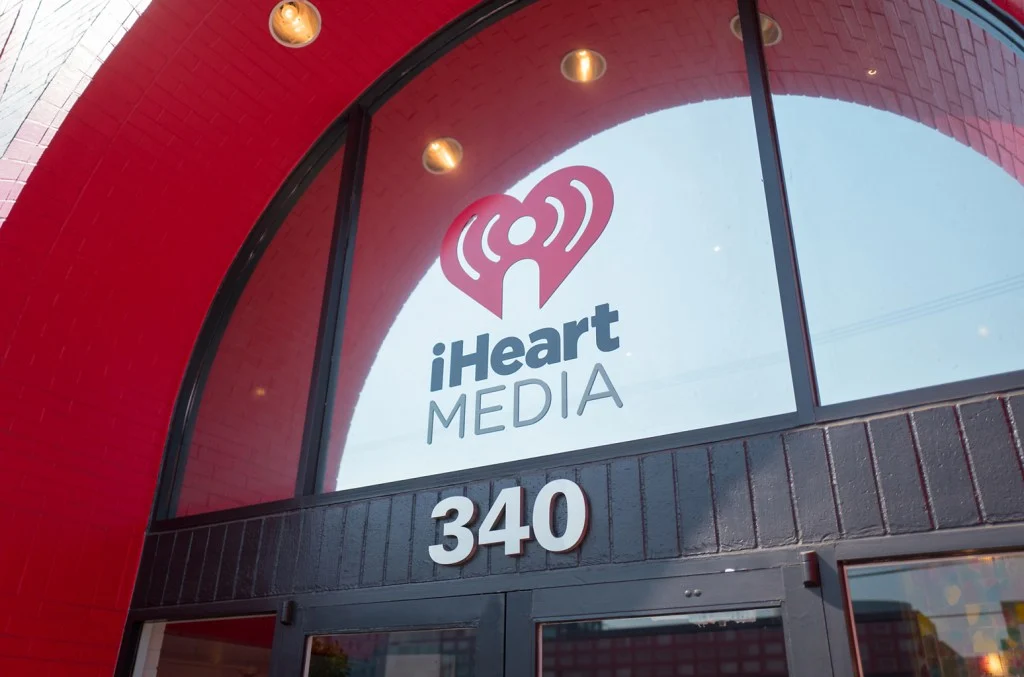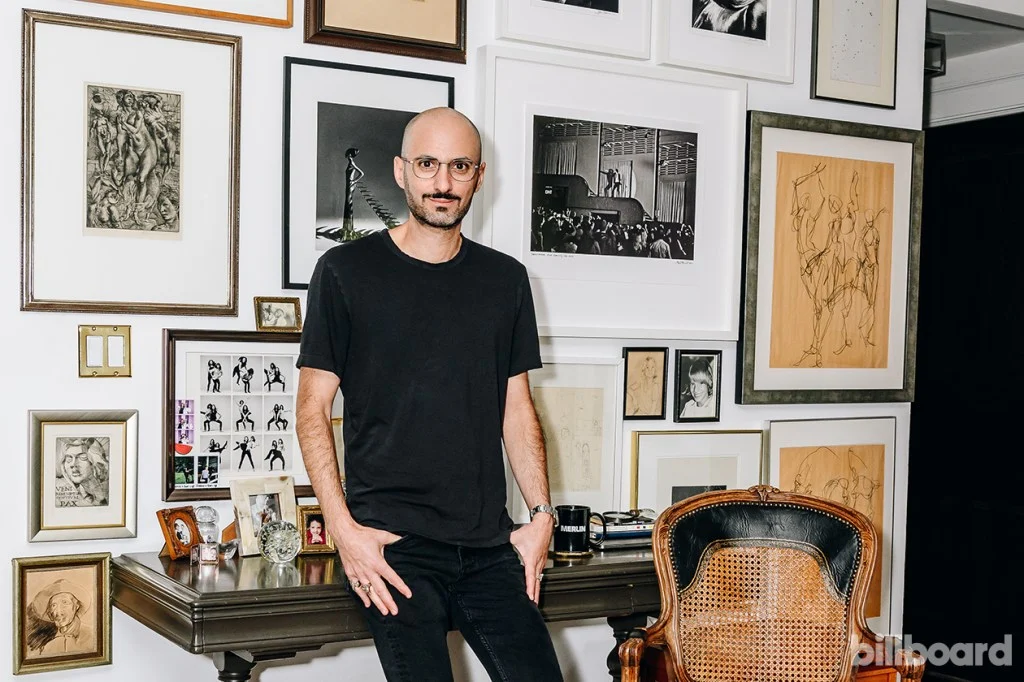Business
Page: 64
Universal Music Group (UMG) announced a new project with Apple Music on Tuesday (May 13) “to help listeners attain clearer focus, deeper relaxation, and better sleep,” according to a press release. The initiative, called Sound Therapy, takes songs listeners are already familiar with — including tracks from Imagine Dragons, Katy Perry, Kacey Musgraves, Jhené Aiko, […]

Sean “Diddy” Combs’ ex-girlfriend Cassie Ventura took the witness stand Tuesday (May 13) at the rap mogul’s sex trafficking trial, telling jurors that Combs “controlled a lot of my life” and subjected her to repeated “physical abuse.”
Ventura, an R&B singer who dated Combs for 11 years, is at the very center of the case against him — in which prosecutors say the superstar used his music empire “feed his every desire,” including by forcing Ventura and other women to have sex with male escorts — events allegedly known as “freak offs.”
Just a day after the trial began, Ventura took the witness stand to tell jurors she felt she had no choice but to participate in those sexual encounters — at times because she was in love with Combs and wanted to please him, but also because she feared blackmail, physical violence and other blowback.
“Sean controlled a lot of my life, whether it was career, the way I dressed — everything,” Ventura, visibly pregnant with her third child, testified. “I just didn’t have much say in it at the time.”
Sometimes emotional, Ventura testified that “violent arguments” with Combs “too often” led to “physical abuse” that included him punching, kicking and dragging her. She also offered more details about the freak offs, including that some lasted days: “The freak offs became a job,” she said, “where there wasn’t any space to do anything else but to recover and just try to feel like normal again.”
Combs was indicted in September, charged with running a sprawling criminal operation aimed at facilitating the elaborate freak offs, in which Combs and others would allegedly ply Ventura and other victims with drugs and then coerce them into having sex with escorts while he masturbated. Prosecutors also claim the star and his associates used violence, money and blackmail to keep victims silent and under his control.
It was Ventura’s civil lawsuit, filed in November 2023, that first raised those allegations against Diddy. Her case, which accused the star of rape and years of physical abuse, was quickly settled with a large payment from Combs, but it sparked a flood of additional suits from other alleged victims and set into motion the criminal probe that led to his indictment.
Once one of the music industry’s most powerful men, Combs is formally accused in the case of racketeering conspiracy (a so-called RICO charge), sex trafficking and violating a federal prostitution statute. If convicted on all of the charges, he faces a potential life prison sentence.
The trial, expected to last two months, kicked off Monday (May 12) with opening statements, during which prosecutors told jurors that Combs and his associates used “coercive and criminal” conduct to make the freak offs happen: “For twenty years, the defendant, with the help of his trusted inner circle, committed crime after crime,” prosecutor Emily A. Johnson told the jury. Prosecutors also quickly played a 2016 surveillance video of Combs beating Ventura at a Los Angeles hotel.
When it was their turn, defense attorneys told jurors that Ventura and other victims had consensually taken part in the sex parties. They admitted that Diddy committed domestic violence during “toxic” relationships with the women and that he certainly had unusual sexual preferences, but said those did not amount to racketeering or sex trafficking: “Sean Combs is a complicated man, but this is not a complicated case,” said defense attorney Teny Geragos.
Following Tuesday morning’s testimony, Ventura is expected to testify more in the afternoon and for several days after that. When prosecutors are finished questioning her, Combs’ attorneys will have a chance to cross-examine her. They will likely seek to cast doubt on her credibility and portray her as a willing participant in the freak offs.
After Ventura’s testimony is complete, prosecutors will continue to call other witnesses, including a second alleged freak off victim identified by the pseudonym “Jane” and an alleged employee victim identified by the pseudonym “Mia.”
Taylor Swift’s longtime lawyers are asking a court to throw out a subpoena they were served by Justin Baldoni in his feud with Blake Lively over the movie It Ends With Us, just a few days after Swift’s own reps slammed Baldoni for targeting the pop star with a similar subpoena.
The Washington, D.C.-based law firm Venable, which has represented Swift for more than a decade, revealed in a Monday (May 12) motion that Baldoni’s lawyers served it with a subpoena on April 29 seeking all communications between the firm on one side and Lively, the actress’ husband Ryan Reynolds and/or their attorney Michael Gottlieb on the other.
The subpoena specifically name-drops Douglas Baldridge, a Venable partner who’s worked with Swift since 2013 and recently returned to the firm after a stint as general counsel at her company, 13 Management.
Trending on Billboard
“Venable had nothing to do with the film at issue or any of the claims or defenses asserted in the underlying lawsuit,” wrote the firm in a so-called motion to quash, which, if granted, would throw out the document request. “There is no reason for this subpoena other than to distract from the facts of the case and impose undue burden and expense on a non-party.”
The law firm described Baldoni’s subpoena as a “fishing expedition,” noting that “even if Venable were somehow involved (again, it is not),” the documents that Baldoni seeks should be sourced from Lively and Reynolds themselves. The actor power couple is supporting Venable in its quest to throw out Baldoni’s subpoena, calling it an “abuse of the discovery process” in a court filing on Tuesday (May 13).
Revelations of the Venable subpoena come just a few days after Swift’s representatives confirmed that she, too, had been served with a document request in the Baldoni-Lively feud. Mirroring the language in Venable’s motion, a representative for Swift said she had no involvement in It Ends With Us and slammed the subpoena as “designed to use Taylor Swift’s name to draw public interest by creating tabloid clickbait instead of focusing on the facts of the case.”Venable did not immediately return a request for comment, nor did reps for Swift, Lively, Reynolds or Baldoni.
The It Ends With Us legal battle began when Lively launched bombshell claims in December, alleging that Baldoni, her co-star and director on the movie released last summer, sexually harassed her on set and then orchestrated a public relations smear campaign to retaliate against her after she complained.
Baldoni vehemently denied the claims and countersued Lively for defamation and other wrongdoing in January. Baldoni’s suit said Lively leveraged her close relationship with a “megacelebrity friend,” presumed to be Swift, to take control of the movie.
The Baldoni filing includes text messages concerning an alleged meeting attended by “Ryan and Taylor,” seemingly referencing Reynolds and Swift. In one message sent by Lively, the actress called Swift and Reynolds her “most trusted partners” and compared them to the “dragons” in the show Game of Thrones.
“The message could not have been clearer,” Baldoni’s lawyers wrote in the countersuit. “Baldoni was not just dealing with Lively. He was also facing Lively’s ‘dragons,’ two of the most influential and wealthy celebrities in the world, who were not afraid to make things very difficult for him.”
Chinese streaming platform Tencent Music Entertainment grew its stake in the world’s largest music company, Universal Music Group (UMG), by picking up a direct 2% equity holding worth $327 million in March, the company said on Tuesday (May 13).
While it did not identify the seller — described in Tuesday’s filings only as “one of our associates” — Pershing Square sold 50 million shares of UMG on March 13, raising about $1.3 billion, according to filings and research reports. Tencent Music and Pershing Square did not immediately respond to requests for comment.
The news means that Tencent Music and UMG each own notable stakes in each other’s companies, as UMG owns a 0.79% stake in TME as of Dec. 31 that’s currently worth $181.2 million.
Trending on Billboard
Tencent Music has been an investor in UMG since March 2020, when it joined a consortium of investors led by its parent company, Tencent Holdings. That consortium accumulated a 20% stake in UMG from UMG’s parent company, Vivendi S.A., between 2020 and 2021, of which Tencent Music owned a 10% share, according to filings.
This March, that consortium “completed a transfer of the UMG shares held by the consortium to its members,” which resulted in Tencent Music acquiring a direct 2% equity interest in UMG, according to its annual report.
Tencent Music, which reported first-quarter revenue of 7.36 billion Chinese yuan ($1.01 billion) on Tuesday, recognized “other gains” worth 2.44 billion Chinese yuan (US$336 million), of which the UMG stock comprised 2.37 billion Chinese yuan (US$327 million), according to filings.
Pershing Square has been an investor in UMG since 2021, and though the mid-March stock sale reduced its stake in UMG to 4.9% from 7.6%, the music company remains the hedge fund’s largest single holding, comprising 17% of its capital.
The sale came ahead of Pershing Square’s plan to register its UMG shares in the United States in September. Pershing Square head and UMG board member Bill Ackman has advocated for the company to move its primary listing from the Euronext Amsterdam stock exchange to a U.S.-based exchange, saying it would add value for the company.
In a year filled with economic uncertainty and instability, iHeartMedia is seeing “generally stable ad spend,” CEO Bob Pittman said during the company’s first quarter earnings call on Monday (May 12).
The radio and podcasting giant had first-quarter revenue of $807 million, up 1.0% from the prior-year period. Excluding political advertising, which was boosted by the 2024 elections, revenue increased 1.8%.
The multi-platform segment, which includes broadcast stations, had revenue of $473 million, down 4%. But Pittman expressed cautious optimism that radio advertisers are remaining with the format. Premiere Radio Networks, which represents national advertising, was up 2% in the quarter. “I think that’s sort of an indication that the bigger advertisers are hanging in there,” he said.
The 1% revenue uptick was a positive for a company that stood to bear the brunt of an advertising slowdown due to U.S. tariff policy. Analysts had expected revenue to decline 1.6% to $786 million.
Trending on Billboard
iHeartMedia is increasingly a podcast company, and the digital audio group continued to be a growth source. In digital, revenue rose 16% to $277 million and adjusted earnings before interest, taxes, depreciation and amortization (EBITDA) improved 28% to $87 million. The company had a unique podcast audience of 32.7 million and 177 million streams and downloads in March — both No. 1 in the U.S., according to Podtrack.
“We’re beginning to feel the flywheel effect of being the strong number one in podcast publishing. Our podcasting financial discipline and our focus on the high-margin podcast publishing sector continue to fuel what we believe is the most profitable podcasting business in the United States and to accelerate our growth,” said Pittman.
The audio and media division’s revenue fell 14% to $59.3 million due primarily to non-recurring contract termination fees earned by Katz Media last year. The segment’s adjusted EBITDA dropped 33% to $15.8 million.
The company expects its second quarter consolidated revenue to be down in the low single digits compared to the same period last year. April “pacing” was down 2% year over year, according to CFO Rich Bressler. For iHeartMedia to hit its full-year guidance and avoid a possible down advertising market, Bressler added, the company will need “some positive movement in the macro [environment] and improvement to the uncertainty in the back half of the year.”
Shares of iHeartMedia jumped 19.3% to $1.54 in early trading Tuesday (May 13) but had fallen to $1.22, down 5.4%, by midday.
Facility management company Marathon Live is opening the music venue FIVE, located at Jacksonville, Fla.’s, historic Five Points, on Tuesday night (May 13) with Korean-American singer, musician and internet personality BoyWithUke performing. FIVE is located in a historic 1927 theater that was recently renovated. The work began in August with crews working to preserve the […]
Ineffable Live has signed an exclusive talent buying agreement with Majestic Ventura Theater, previously managed and booked by Live Nation since 2019. Ineffable Live is the concert promoter and talent buying division of Ineffable Music Group, the Oakland-based record label, management company and concert promoter. Ineffable’s stable of California venues include the Uptown Theatre in […]
Jeremy Sirota will leave Merlin at the end of the year, the licensing organization announced on Tuesday (May 13).
Sirota has served as CEO since 2020, guiding Merlin as it steers digital music licensing for independent labels and distributors. During Sirota’s tenure, Merlin reached new deals with Apple, Audiomack, Canva, Peloton, Snap, Twitch and more.
In a statement, Darius Van Arman, who is both chairperson of Merlin and co-founder/co-owner of Secretly Group, called Sirota “an extraordinary CEO” who brought “great focus, tremendous energy and brilliant thinking to one of the most important and challenging roles within the independent community.”
“His work and leadership has Merlin more prepared than ever to manage an increasingly complex music licensing landscape and to achieve our mission of enabling greater independence for all Merlin members,” Van Arman continued.
In his own statement, Sirota called helming Merlin “the privilege of a lifetime.” He added that the organization continues “to be the most important organization representing independents” and that it “has a bright future.”
Trending on Billboard
Sirota previously worked as a tech lawyer before spending nine years at Warner Music Group and then jumping to Facebook Music.
That experience “gave me the ability to relate to people at different levels in the business, whether it’s a product manager at a digital platform, or an engineer who’s now a founder of a startup, or it’s a member who runs a metal label,” he told Billboard last year. “I’ve always been on the service side, and that’s always been the through line.”
During Sirota’s time as CEO, Merlin added over 100 members. In addition, the organization launched Merlin Engage, a program to mentor the next generation of women executives, and Merlin Insights, to help members analyze the deluge of data that’s available in world of streaming.
“We now have a data operations team to make sure that all trends data is being delivered in the right format,” Sirota explained in 2024. “Our market share on some of these platforms is significant — more than just the 15% we talk about. So we have this incredible wealth of data. We have the ability to pull out interesting stories that help our members — things they don’t know because they’re not on the ground.”
Tencent Music Entertainment (TME) said on Tuesday a 17%-surge in music subscription revenue drove higher first quarter revenue for China’s fast-growing streaming platform.
Total revenues rose 8.7% to RMB7.36 billion (US$1.01 billion), with music subscription revenue up 16.6% to RMB4.22 billion (US$581 million) for the quarter ending March 31, 2025, compared to the same time period a year ago. TME’s total subscriber base now stands at 122.9 million, up 8.3% from a year ago. While that is still less than half of Spotify’s total number of paying subscribers — Spotify reported 268 million subscribers in the first quarter — it drove monthly average revenue per paying user (ARPPU) up to RMB11.4 ($1.57) from RMB10.6 ($1.47) a year ago.
“With the sound foundations we have built, a thriving music ecosystem, and healthy financial position, we are well equipped to navigate global uncertainties,” TME’s executive chairman Cussion Pang said in a statement. “We remain on track … to achieve sustainable growth in 2025.”
Trending on Billboard
The Chinese music streaming company operates three music streaming services — Kugou Music, QQ Music and Kuwo Music — as well as WeSing, a karaoke app. In recent years, Tencent Music’s business has become dominated by music services, while its social entertainment business has declined.
Online music revenue increased by nearly 16% to RMB5.80 billion (US$800 million) from a year ago, driven by the rise in music subscription revenues and an increase in advertising revenue. The business also benefitted from higher merchendise revenue from physical album sales for artists like Teens in Times and Silence Wang, and offline performance revenue.
Chinese genres are still the most popular music streamed on its platform, TME executives said, but the growing popularity of Korean, English and Japanese tracks on Tencent Music drove the company to expand existing partnerships with South Korea’s Starship Entertainment and YG Entertainment and Japan’s ACG entertainment company during the quarter.
The company also disclosed it signed a new multi-year licensing agreement with Sony Music Entertainment and extended agreements with Emperor Entertainment Group and Rock Records during the quarter.
TME’s social entertainment business, which has been in decline in part due to government crackdowns on social platforms, fell by nearly 12% to RMB1.55 billion (US$214 million). TME said the decline was “mainly the result of adjustments to certain live-streaming interactive functions and more stringent compliance procedures implemented.”
The strength in subscription revenues drove TME’s gross margin to 44.1% from 40.9%, with a total operating profit of RMB4.84 billion (US$666 million) in the first quarter of 2025, a whopping 146.9% increase from a year ago. Net profit attributable to equity holders was RMB4.29 billion (US$591 million), representing 201.8% year-over-year growth.
The company also said it received 2% equity stake in Universal Music Group in March as a result of a “distribution-in-kind from one of our associates” worth RMB2.37 billion (US$327 million).
Pershing Square Holdings, the hedge fund run by UMG board member Bill Ackman, sold 50 million shares of its UMG holdings — approximately 2.7% of UMG’s outstanding stock — in mid-March as part of a campaign to get UMG to list in the United States.
After shaping some of the biggest acts in global pop, HYBE is setting its sights on Latin music with an ambitious new reality series from its subsidiary, HYBE Latin America. Billboard has exclusively learned that production kicks off this week in Mexico City on the yet-to-be-titled project, which aims to form a new all-male pop group.
The series will train and develop 16 contestants from countries including Mexico, Brazil, the U.S., Peru and Spain, narrowing the field to a final five by the end of the season this fall.
The series’ format and execution differs from other reality talent competition in multiple key ways. First and foremost, it’s HYBE’s first artist development venture of this scale focused entirely on Latin talent, combining the development discipline the company has applied in K-pop with Latin American cultural and artistic sensibility.
Trending on Billboard
Further, instead of airing as a carefully formatted weekly television show, the reality show is a multi-platform production that integrates long-form storytelling, performance content and behind-the-scenes narratives distributed across streaming, social and music platforms.
The project also features a roster of mentors that may be unprecedented in a Latin reality show. It includes director and choreographer Kenny Ortega (High School Musical, The Descendants) as executive producer; Charm La’Donna (Kendrick Lamar’s 2024 Super Bowl, Bruno Mars) as head choreographer; and Robert J “RAab” Stevenson (SZQ, Rihanna) as head vocal coach.
“This project is about much more than music. It’s about reimagining how Latin talent can be discovered, developed and presented to the world. We are building the foundation for the next generation of global Latin artists with the highest creative and production standards,” said J.H. Kah, CEO of HYBE Latin America, who is leading efforts on the venture, in a statement.
The new project joins a roster of properties that includes newly-announced talent competition Pase a la Fama, which HYBE Latin America developed with Telemundo. The competition show seeks to find the next regional Mexican band and premieres on Telemundo June 8 with Ana Bárbara, Horacio Palencia and Adriel Favela as judges.
This show, however, doesn’t have a partner network.
While contestants officially arrive in Mexico this week (beginning May 12), preproduction for the show has been underway for months. Hundreds of applications poured in from across Latin America and the U.S., leading to an initial shortlist of 300 candidates. From there, 16 finalists were selected to begin intensive training at a custom-built “bootcamp” located in Mexico City’s Parque Bicentenario.
The bootcamp will include some 30 instructors, including vocal coaches, producers, fitness trainers and choreographers and is supported by Weverse, HYBE’s extremely successful social media/fandom platform.
HYBE Latin America
courtesy of HYBE Latin America. ©️ 2025 HYBE Corporation.
Make no mistake — this is a distinctly Latin production. The show is being helmed by two seasoned Colombian producers: showrunner Jaime Escallón (X Factor, Survivor) and production designer Lucas Jaramillo. Both serve as executive producers and co-creators of the format, with a clear mission to build a production environment that authentically reflects Latin culture.
“This is different from other talent reality shows in that it takes place in a space designed for the city to participate in,” says Jaramillo, noting that production is working closely with Mexico City government and fans will be allowed to actually visit the space and be part of performances and media experiences. “That’s why we’ve developed a cultural program that’s both artistic and media driven, and includes things like podcasts. This is a show that’s alive.”
The project is HYBE Latin America’s latest venture after launching in 2023 with the acquisition of Exile Music, the music division of Spanish-language studio Exile Content, led by Isaac Lee, who is now chairman of HYBE Latin America. The company has moved quickly since then. With offices in Mexico City, Miami, and Los Angeles, the division houses labels such as DOCEMIL Music and Zarpazo Entertainment.

 State Champ Radio
State Champ Radio 








